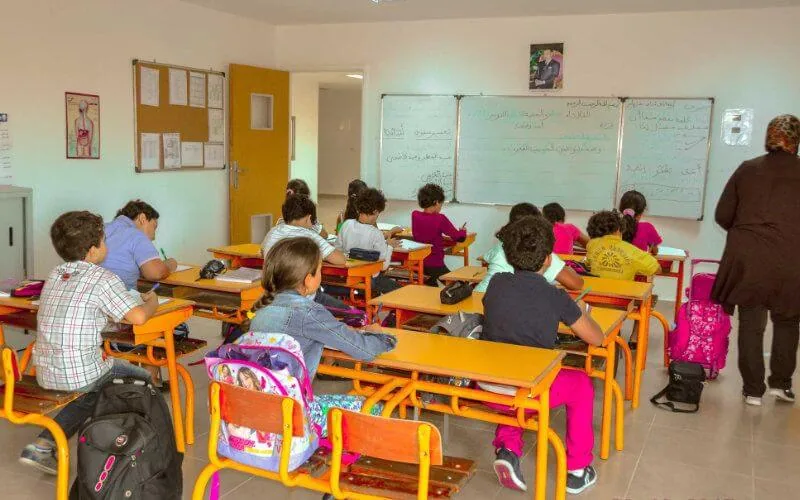Morocco’s Bold Education Reform Shows Early Promise, Outpacing French Efforts

Morocco has implemented a similar but bolder plan than France to raise academic standards. The reform is already bearing fruit.
In 2022, the very poor results obtained in international surveys such as Pisa, Timss or Pirls pushed Morocco to engage in a science-based reform, which is revolutionizing schools. The kingdom then developed an action plan entitled "pioneer schools". Launched at the start of the 2023 school year, it has the particularity of relying on educational research that has proven successful internationally. From adapting teachers’ pedagogical methods, distributing standardized courses, to working on leveling students at the beginning of the year, establishing a culture of evaluation and renovating schools, the kingdom is multiplying reforms.
"In just one year, the results obtained are impressive. Never seen before in such a short time! It must be said that the students were starting from a very low level," marvels Pascal Bressoux, professor at the University of Grenoble-Alpes and member of the Learning in Context Research Laboratory (LaRAC), associated with the project from the start. "During the first year, 2023-2024, the plan involved 626 schools (out of the 8,000 in total in the country), called "pioneers", all volunteers," reports L’Express. "Focusing on this first sample allows us to verify if the measures work and to adapt them if necessary before generalizing them at the national level," explains the academic.
The government is primarily betting on the "Teaching at the right level" (TARL) method, developed by the Indian NGO Pratham. It involves giving placement tests to students at the beginning of the year, particularly in reading and calculation, then distributing them into groups adapted to their needs and, gradually, helping them reach new levels. There are strong similarities with the reform initiated by Gabriel Attal in France, during his time at the Ministry of National Education in 2023. "The big difference is that the latter wanted to extend it to all middle schools without going through this testing phase," points out Marc Gurgand, research director at CNRS, professor at the Paris School of Economics (PSE) and at the École normale supérieure.
Morocco has also applied the method called "explicit teaching". This method consists of ensuring that students have understood a lesson before moving on to the next one, gradually leading them towards increasingly complex tasks but also towards more autonomy. "The idea was to train teachers minimally at the start and then rely on this practice for them to acquire automatisms themselves thanks to these supports. This represents a considerable time saving," explains Pascal Bressoux.
Another pillar of this plan: regular monitoring of student levels through "skills booklets". A random verification system has been put in place to ensure the objectivity of teachers. "Gradually, Morocco has established a true culture of evaluation. The results obtained have themselves been validated by serious independent international laboratories, such as J-PAL, affiliated with the American university MIT and co-founded by Nobel Prize winner in Economics Esther Duflo," explains Marc Gurgand.
All these efforts have been crowned with success: slight improvement in primary school results. Currently, Morocco is striving to improve its position in the Timss ranking by 2027 and perhaps even rival France by 2031. The kingdom ranked 56th out of 58 countries in the 2023 edition. Conducted every four years, the international Timss survey is dedicated to student results in mathematics and science.
Related Articles
-

Morocco Bolsters Military with $120 Million Israeli Drone Deal, Expanding 1,000km Strike Range
1 September 2025
-

Mother of Three Brutally Tortured for 8 Days in Horrific Kidnapping Near Témara
1 September 2025
-

Border Police Crack Down on Thriving Stolen Car Trade to Morocco
1 September 2025
-

Vacation Nightmare: Dutch Teen’s Seizure at Moroccan Airport Leads to Harrowing Medical Ordeal
31 August 2025
-

Morocco’s Intelligence Services: The Unsung Heroes in Global Counter-Terrorism and Drug Busts
31 August 2025